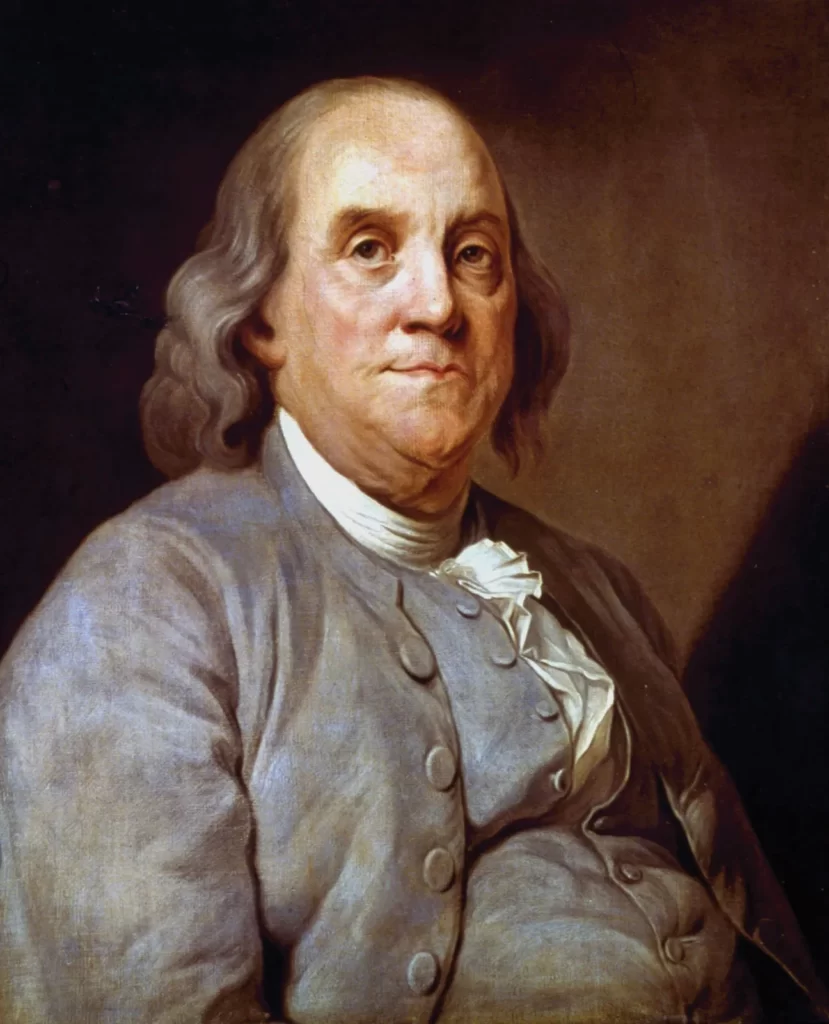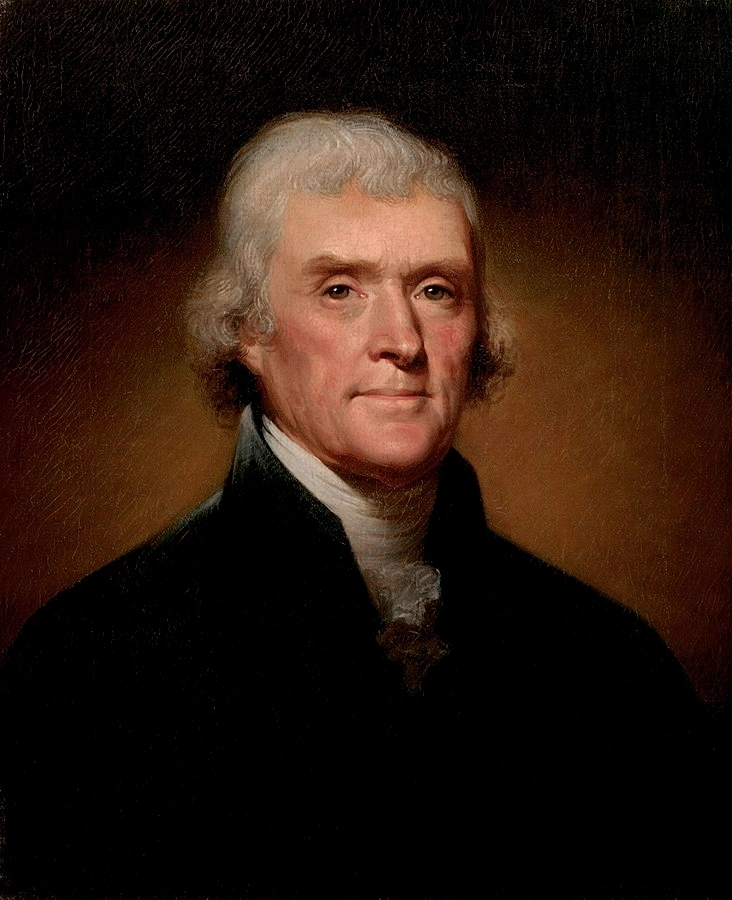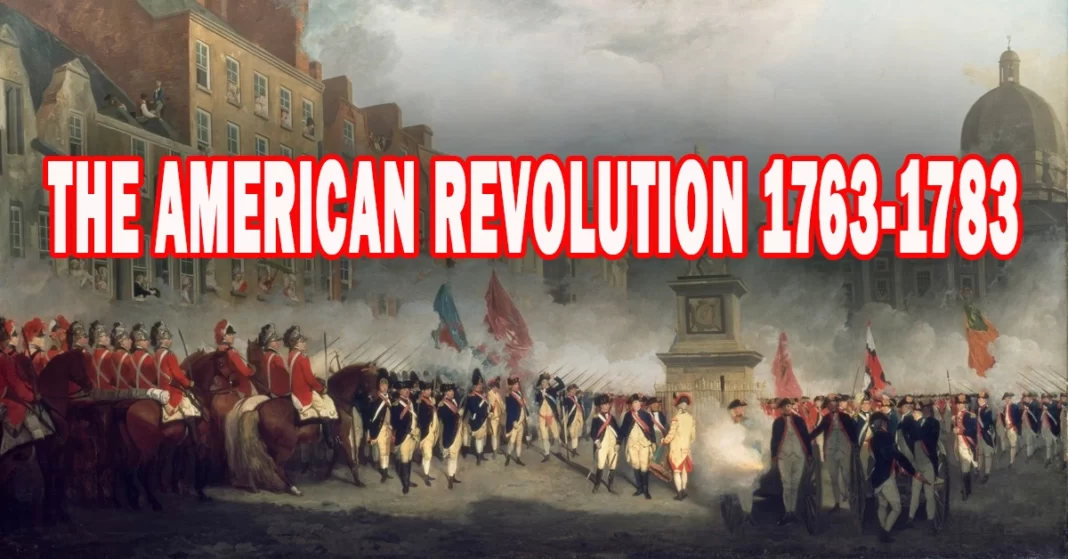The term “revolution” refers to a radical change or overthrow of a government. When we talk about revolution, how can we forget the American Revolution? The American Revolution was a period of political revolution. It was fought as an insurrection to establish the sovereign state of America. 1763 was a turning point for the colonials as it suppressed the colonies. Also, it imposed revenue taxes. Since the 17th century, North Americans have played havoc with a series of wars. The wars between France, Spain, and Britain.
Timeline of the American Revolution, 1763-1783
Here is the American Revolution timeline from the years 1763–1783.

1760’s
| Year | Date | Event |
| 1763 | 10 February | Treaty Of Paris signing |
| 1763 | 7 October | Proclamation of 1763 |
| 1764 | 5 April | Sugar Act by Vice-Admiralty Court to put off smuggling cases. |
| 1765 | 22 March | Stamp Act under which all the legal documents are required to be stamped or watermarked. |
| 1765 | 15 May | Quartering Act. The act was designed to pay for supplies to the British garrisons. |
| 1765 | 30 May | Virginian Resolution |
| 1765 | 7-25 October | Stamp Act Congress |
| 1766 | 18 March | Under the Declaratory Act, the Parliament revokes Stamp Act. |
| 1767 | 29 June | Townshend Revenue Act by which the duties implies on the paint, glass, paper, and lead |
| 1768 | 1 October | Upon the political unrest, the British troops arrived in Boston. |
1770’s
| Year | Date | Event |
| 1770 | 5 March | Boston Massacre, which resulted in the killing of five civilians. |
| 1770 | 12 April | Townshend Revenue Act was repealed, |
| 1772 | 10 June | Angered by the trade legislation, they burned the Gaspee near Rhode Island. |
| 1773 | July | Publications of the letter by Massachusetts governor, Thomas Hutchinson. |
| 1773 | 10 May | The Tea Act. Parliament exempts its tea from the export duties to provide support to the East India Company. |
| 1773 | 16 December | Boston Tea Party |
| 1774 | May & June | Boycott of British goods by colonies. |
| 1774 | September | Continental Congress |
| 1775 | 19 April | Battles of Lexington and Concord. |
| 1775 | 16 June | George Washington was appointed as commander-in-chief of the Continental Army. |
| 1775 | 17 June | On 17 June 1775, the first major war of independence took place, the Battle of Bunker Hill. |
| 1775 | 5 July | Oliver-Brach Petition was made for American rights but George II rejected this petition. |
| 1776 | 9 January | Thomas Paine’s Common Sense was published in Philadelphia. |
| 1776 | 2 May | Americans got aid from France. |
| 1776 | 4 July | The Continental Congress issued the Declaration of Independence. |
| 1776 | August-December | Battles of Long Islands and White Plains. British forces occupy Americans. |
| 1776 | 26 December | Battle of Trenton |
| 1777 | 2 & 3 January | Battle of Princeton |
| 1777 | 13 October | British surrendered troops to Major General Horatio Gates at Saratoga. |
| 1778 | 6 February | France recognizes United States Independence. |
1780’s
| Year | Date | Event |
| 1780 | 16 August | The Battle of Camden. The US gets defeated. |
| 1781 | 1 March | Articles of Confederation were rectified. |
| 1781 | 5 September | Battle of the Capes |
| 1781 | 18 October | Surrender of the British Forces at Yorktown. |
| 1782 | 5 March | Negotiations by the British government. |
| 1783 | 3 September | Treaty of Paris, which ends the Revolutionary War. |
Famous Personalities in the American Revolution
From the above timeline, we know the major events during the American Revolution. Now let’s look at some famous personalities and their role in the American Revolution in particular.
Thomas Hutchinson
Thomas Hutchinson was a businessman and politician in Boston, Massachusetts. He is referred to as the most important figure in pre-Revolutionary Massachusetts. As governor of the province of Massachusetts Bay, he tries to calm the situation, particularly after the Boston Massacre.
During the Revolutionary War, Thomas Hutchinson’s letters were published in a Boston newspaper. The letters explain the revolts in the colony against the taxes and call for the rights of the colonials. It also proposes suggestions for improvements for the colonials.
King George III

King George III was the King of Ireland and Great Britain. During his reign, many wars were fought. During the American Revolution, he sought the legitimate rights of Americans. One of the reasons why the Revolutionary War lasted so long was that King George III refused to surrender the colonies.
Benjamin Franklin

Benjamin Franklin was an American scientist, writer, and political philosopher. He played a major role in Philadelphia’s civic life and the Declaration of Independence. He also acted as a spokesperson for the colonials.
Patrick Henry

Patrick Henry was an American politician and attorney. He was one of the leading advocates for independence in the American Revolution. At the Second Virginia Convention, he gave a speech, saying, “Give me liberty, or give me death!” He also wrote many letters to put an end to slavery.
John Adams

John Adams was an American writer and attorney known for his extreme patriotism. J.Adams also played an important role in the negotiations of the Treaty of Paris. He served in Holland and France during the war period.
Thomas Jefferson
Thomas Jefferson was the third President of America. He was one of the people who started the United States. He wrote the Declaration of Independence, which says that the American colonies are no longer under British rule.

Slavery, rights of black Americans, and the American Revolution
The American Revolution undoubtedly had a great effect on slavery. Many enslaved people gained their freedom.Many of them were emancipated, while others freed themselves by running away. According to the reports, 5,000 enslaved people from Georgia got freedom, while a quarter of enslaved people from South Carolina did. In 1775, the governor of Virginia, Lord Dunmore, promised to free all the enslaved people who belonged to rebels.
During the Revolutionary War, Black Americans played a dominant role. Many black American soldiers served during the war period. During the war, many black Americans were assigned the role of servers, cooks, wagoners, etc. The revolution undoubtedly inspired the blacks to claim their rights, “The rights of Black Americans.”

Outcomes of The American Revolution
The American Revolution was a particular period of political and military struggle. The colonials fought for their rights and representation before the British monarch. The Americans’ victory paved new ways for trade. The revolution also had a significant effect on the social and political life of the United States. Undoubtedly, it played a major role in freeing the people from slavery. Americans’ lives changed drastically positively, particularly after the war period.







